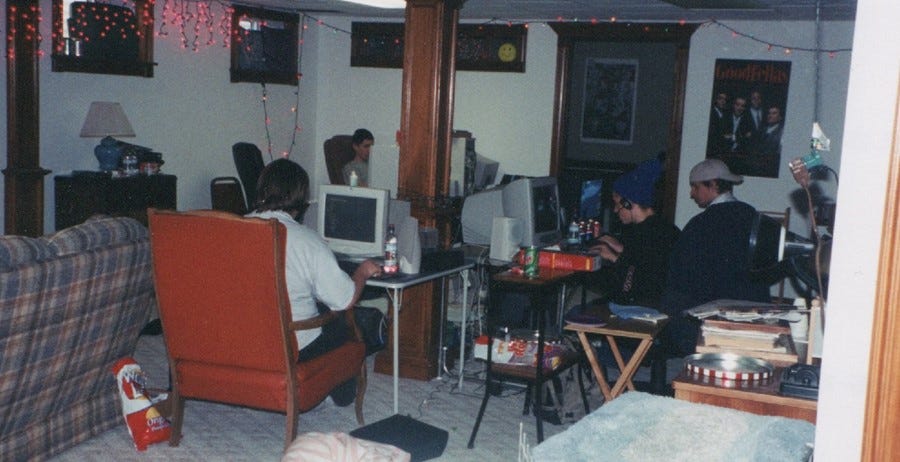Opinion: Traditional Advertising Doesn't Work For Gaming
Old school brands keep launching tone deaf gaming campaigns
If I’m being honest, SUMMONER began in frustration. I had been working as a client-side creative director for about a decade and I began to notice that the pitches I was receiving from massive multimillion dollar creative agencies all shared a handful of troublesome themes.
The pitches did not seem to understand the games we made and treated them broadly as a genre of entertainment rather than a unique product capable of spawning millions of fans and vibrant communities and subcommunities.
The pitches were filled with surface level insights about gaming communities with lines such as: gamers love to win and gaming creates connections.
The pitches featured tactics that could be applied to any game and lacked perspective tuned directly at our titles’ unique styles, cultures, and communties.
And while we often turned down the pitches – a symptom of being lucky enough to have worked at studios deeply committed to authentic representation of their games and community – I’d see the same agencies or similar agencies releasing gaming-focused advertising elsewhere and most egregiously in partnership with non-endemic brands who were attempting to break into the massive and profitable gaming ecosystem.
One needs not look further for such an example than Coca-Cola’s “Real Magic” gaming ad that came out a few years ago. A collaboration between several massive agencies that featured an esports pro playing a fictional game in which their orc character is revived in combat via the power of drinking a Coke and fond memories of their orc children. Seeing is believing, so please watch for yourself.
I need to express that my goal is not to dunk on these agencies or brands or their creative and marketing teams. My intention is not to expose a lack of creative thought or good strategy because the agencies behind a lot of this work are some of the best in the world. They are responsible for groundbreaking, culture-shifting creative that redefined sports brands, car companies, and fast food franchises. These agencies often have endless creative genius when it comes to developing campaigns for traditional categories – but not gaming.
I can’t look behind the curtain and see how these often out-of-touch and inauthentic gaming campaigns get made for massive brands, but I have a theory as to why agencies seem to struggle so much with them.
It isn’t hard to immerse yourself within the Coke community because I’d argue there isn’t one. No one has particularly strong feelings about Coke, so it’s the job of an agency to convince you that drinking Coke and only Coke will bring you happiness. Your goal then becomes about breaking through the flood of overwhelming daily chatter to try and get people talking about your soda with outlandish and ingenious creative campaigns designed to either raise positive brand awareness, generate conversation, or ideally both.
Fine. Great. But this is where everything falls apart when it comes to games. They’re just not the same as a soda or a car or a Chili’s. They in fact have what all those products and brands desperately try to create with each outlandish new campaign: a deeply committed community filled with inside jokes, popular personalities, common frustrations, deep relationships, and everything else that a group of people with a single shared passion typically generates. I won’t dunk on the agencies who make inauthentic gaming work because they’re being asked to immerse within these complex and sometimes impenetrable communities with the tools of traditional advertising that simply haven’t caught up with the modern gaming ecosystem.
SUMMONER was started in frustration because of this reality. We want to take everything we know about gaming, learned from decades working in actual games, and bring that to these brands so they can start launching creative campaigns that speak directly to gaming communities while sharing and honoring their devotion, passion, and even frustrations with a title. We want to be the best in the world at it.
I wrote this because one of these campaigns I’ve been talking about launched the other day for a skin care brand, and in honesty it really frustrated me again. This seemed to be a massive campaign centered around the insight that since “gamers” spend so much time in front of screen and love “rare” skins they should protect their own skin with a UV blocking lotion.
Again, I don’t fault the extremely massive agency or brand for this type of ad, which was filled with gameplay footage from fictional games, but I do think this type of work can be harmful to a community I love deeply.
Gaming is mainstream now and cool and blah blah blah, but it has been a long road to get here. It wasn’t that long ago that my friends and I were freaks and dorks for playing WoW all weekend instead of going to parties. But we all loved it too much to care and began building communities around that love.
These are the communities that persist and grow today, and their specificity, their inside jokes and memes and creators are what make them special and unifying. But with every piece of advertising aimed at going to wide audiences that paints with broad strokes, I believe a bit of the progress we’ve all made within our individual communities as individuals is chipped away and takes us back to the depthless perception of generic “gamers.”
I shouldn’t care this much. I’m fairly confident this stuff doesn’t even register on the radar of the people who make the games ecosystem thrive, but as people who work in game advertising, we need to be here to represent this world authentically and responsibly with care towards the millions of players around the world who have found a home somewhere in gaming and would love to have it represented as beautifully as it actually is.
-Matt





